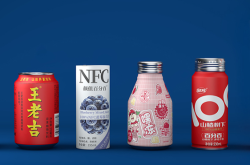Meituan-style Cost-Effectiveness, Balancing Supply and Demand
![]() 06/11 2024
06/11 2024
![]() 680
680
Written by Wu Xianzhi & Wu Kunyan
Edited by Wang Pan
On June 6, Meituan released its financial report for the first quarter of 2024, achieving revenue of 73.3 billion yuan as of March 31.
Among them, the core local business segment recorded revenue of 54.6 billion yuan, representing a year-on-year increase of 27%. Additionally, both the number of platform users and merchants achieved accelerated growth, reaching record highs, thereby driving an increase in the number of transactions. During the same period, the number of instant delivery transactions (takeout + Meituan Express orders) on the platform reached 5.465 billion, representing a year-on-year increase of 28.1%, surpassing the market consensus expectation of 5.254 billion transactions.
The recovery in consumption and the expansion of "cost-effective" supply during the period are the core factors that exceeded market expectations.
During the earnings call, Meituan indicated that the platform is still exploring more organized subsidy promotion methods to better capture user demand under different conditions. In the financial report, we can see that the expansion of cost-effective supply directly increased the transaction frequency, making the growth rate of transaction frequency in the first quarter exceed the overall user growth rate.
Moreover, online marketing service revenue grew at a rate of 33.5% this quarter, maintaining rapid growth, reflecting that as external competition intensifies, merchants' depth of operation on Meituan continues to increase. Among them, the number of annual advertising merchants for takeout increased by over 20% year-on-year, while the GTV of in-store hotel and travel increased by over 60% year-on-year.
The balanced growth of merchants on the supply side and users on the consumption side is a sign of the prosperity of the bilateral market platform economy. At least in Meituan's first-quarter report, we can see that in the fiercely competitive local lifestyle market, Meituan's competitiveness continues to strengthen.
Enhancing Cost-Effectiveness
From the end of last year to the beginning of this year, Meituan carried out multiple rounds of top-down organizational restructuring around its in-store and home delivery business, realigning its business logic.
In the first quarter, the profit margin of the core local business dropped from 22% to 17.8%. The financial report showed that the average order price of catering takeout and Meituan Express businesses, unlike the low base in the same period last year, has returned to normal levels.

On the other hand, the increase in cost-effective supply has further boosted user demand. In terms of user scale, the number of annually active users for takeout services increased to nearly 500 million in the first quarter, with a significant increase in medium and high-frequency transactions.
Most cost-effectiveness strategies in the internet economy fall into three paradigms. One is to subsidize marketing investments by targeting the uncertainty of advertising and marketing, leveraging platform subsidies to leverage merchant subsidies, directly reducing prices. A typical example is the "Hundred Subsidies" of e-commerce platforms. The second is to meet the needs of different user groups through various mechanisms, such as the consolidated purchasing power of group buying models. The third is through product and operational means, such as various merchant support plans and supply-side resource integration.
Taking Meituan as an example, this is reflected in the "Super Member" project. Through daily coupon distribution and private domain operations, Meituan can unleash the capabilities of service providers to operate regional users in a more precise manner. This is essentially a user integration method that leverages targeted store coupons to "bundle" purchasing power, while participating merchants cede a portion of profit margins in exchange for higher order volumes, thus increasing their weight in the supply pool.
Regarding repeat purchases, Meituan's "Super Member" uses paid and inflated red envelopes to keep user budgets on the platform. It should be noted that the Super Member also has a backup plan, namely replicating the advantages of a single business to other businesses. Takeout, as a traffic hub in Meituan's various businesses, the Super Member will next cover other businesses, effectively injecting filtered takeout traffic into other businesses.
On the merchant side, there are also a series of support and resource integration measures.
Although "Pinhao Fan" (a group meal service) has been viewed as an important portal for Meituan to segment users and provide cost-effective supply, its support and integration on the merchant side are often overlooked. In simple terms, the low-price logic of "Pinhao Fan" can be summarized in two points. One is that the display category products have shifted from store-oriented to product-oriented. The other key point is that the platform screens merchants based on efficiency, customizes "double-high" categories (high frequency, high standardization), and relies more on "smooth orders" in terms of fulfillment, improving rider delivery efficiency and reducing fulfillment costs.
Moreover, Meituan has established a "Brand Satellite Store" model specifically for well-known chain restaurant brands, providing high-cost-effective takeout services, supplemented by a ten-thousand-store commission rebate plan, further increasing cost-effective supply. According to official information, as of the end of May, a cumulative total of 45 brands have opened over 560 brand satellite stores.
The financial report showed that during the same period, the average daily number of instant delivery orders was 60 million, excluding 8.4 million orders from Meituan Express, with catering delivery orders at around 51 million. The proportion of "Pinhao Fan" has approached 10%.
Diverse Supply
Buying two for the price of one is an intuitive interpretation of cost-effectiveness in the consumption context. However, on the other side of supply and demand, merchants obviously cannot accept such a simple and粗暴 logic. In other words, price power built from the consumer side of demand requires the platform to bridge the mismatch between supply and demand, enabling more and more merchants to follow customers.
In the past, most platforms adopted a simple and粗暴 approach, using money-burning subsidies as a lever to trade profits for scale.
However, a closer look at Meituan's financial report reveals that its marketing and sales expenses decreased significantly by 17% quarter-on-quarter to 13.89 billion yuan this quarter, while core local business revenue remained largely flat quarter-on-quarter. This means that despite fierce competition in the in-store hotel and travel market, Meituan's marketing subsidy efficiency has significantly improved.

On the other hand, the core local business advertising revenue also grew at a year-on-year rate of 33% to 10.31 billion yuan this quarter, far exceeding delivery and commission service revenues. Behind this is also the growth drive of in-store hotel and travel business.
The reason may lie in the fact that in the past six months, Meituan has launched numerous scenario-based marketing attempts for the in-store segment of its core local business, objectively providing the platform with diversified supply and thus improving merchants' operational efficiency.
Currently, Meituan's construction of in-store marketing fields takes holiday consumption and family consumption as entry points, providing merchants with more possibilities beyond the shelves through live streaming, online and offline joint promotions, and more. Among them, the efficient coverage of short-term promotions in this field for tourists and returning home populations outside local residents is particularly prominent.
The popularity of Zibo barbecue and Tianshui spicy hot pot has given rise to a new format of "taste tourism." The trend of moving for food and traveling for eating has further activated Meituan's supply potential in lower-tier cities and counties.
Taking the "May Day" holiday this year as an example, in the first three days of the holiday, the number of national catering dine-in orders on Meituan increased by over 73% year-on-year, with some restaurants having waiting lists of over 1,000 tables. The number of visitors to small towns, low-tier cities, and other niche destinations increased significantly during the holiday, with local lifestyle service consumption increasing by 37% year-on-year.
In the end, "customer acquisition" boils down to obtaining the certainty of users' arrival at the store. If anchoring consumers' platform mindset with price power is one side of Meituan's cost-effectiveness, then anchoring merchants with diverse and efficient supply and supply-demand matching is the other side.
From this, we can see that Meituan's live streaming, short videos, and other functions launched last year are gradually integrating with the shelf to form a complete information flow ecosystem, adding a possibility of interest-based consumption on top of planned consumption. More importantly, the transaction link based on search shelves in the past has also been gradually expanded, especially for hotel and travel and in-store group buying, which have longer decision-making chains and are most susceptible to standardization and productization.
In addition, the Super Member, which extends from takeout home delivery to multiple businesses such as in-store dining, hotel and travel, and leisure and entertainment, is also a measure taken by Meituan to further integrate supply resources and create a cost-effective platform mindset.
The pull effect of low-price branding is self-evident. As early as the month when the takeout Super Member was launched, the orders of Meituan users using the "Super Member" increased by 38% year-on-year, and the order volume that month also exceeded the historical peak. For merchants, the exposure of the Super Coupon display position has further reduced the complexity of marketing. All of the above will further deepen the platform's cost-effective mindset.
Self-Innovation
In the past few years, content "new forces" represented by Douyin and Kuaishou have successively entered the local lifestyle market, and Meituan seems to be caught in a multi-front battle. Among them, Douyin's "front" in the group buying and takeout sectors is particularly tricky.
During this quarter's financial report conference call, Meituan CFO and Senior Vice President Chen Shaohui mentioned that Meituan's strategic focus has shifted from external competitors to itself: "We will closely monitor changes in competitors, but our strategy is to consolidate our long-term competitive advantages, rather than focusing solely on market share."
In fact, with the establishment of its core local business and integration of in-store and home delivery operations on April 18, Meituan began to emerge from its strategic defensive phase. As mentioned earlier, the effect of Meituan's content reinforcement has already become apparent. On the other hand, the construction of the marketing field and the upgrade of the Super Member have also given it the potential to extend its home delivery advantages to in-store services.

Self-innovation and expansion are Meituan's main tasks for 2024.
Some argue that the logical differences between in-store and home delivery businesses are like mismatched gears, which may affect the combined performance of Meituan's integrated business. However, judging from Meituan's business changes in the first half of the year, cost-effectiveness is sufficient to become the "lubricant" that bridges the business gap.
A typical case is the low-priced in-store product "Special Price Group" that has been promoted to the homepage in some pilot cities. This product aggregates high-frequency essential services such as relatively low-priced catering and entertainment, further enhancing price power through platform subsidies. Taking Kuddi Coffee as an example, currently, whether it is through its mini-program or Douyin platform group buying, the lowest per-cup price is no less than 8.8 yuan, while the lowest per-cup price in the Special Price Group has reached 7.9 yuan.
More importantly, it uses products as the smallest display unit, similar to "Pinhao Fan," which is essentially the proven "Pinhao Fan" model extending from home delivery to in-store services.
In the past, consumers' in-store consumption decisions were often planned consumption, entering the "search-order-verification" chain after deciding on a consumption item and general target. The long chain allows content platforms with influencers, user time, and traffic to leverage content such as seeding, live streaming, or trending topics to engage users at any stage before verification.
It should be noted that low prices can, to a certain extent, eliminate users' planned consumption and shorten the decision-making chain. For merchants, it is also an excellent way to attract traffic—when stores are淹没 in the shelves, products can stand out with low prices.
In addition, it is worth noting that the rapidly expanding instant retail business has achieved strong year-on-year growth in both annual active user numbers and transaction frequency this quarter.
As early as last year, the combination of a comprehensive delivery and fulfillment system with a front-end warehouse and offline store model successfully opened up a digital 3C consumption scenario for Meituan. Everything from a forgotten data cable on a business trip to the first-time pre-sale of the iPhone 15 highlights the timeliness advantage of offline fulfillment.
Nowadays, Meituan has expanded its "everything delivered to your door" focus categories to broader categories, such as comprehensive sports. In January this year, Meituan Express reached a cooperation with Decathlon, with the latter's nationwide stores already online on Meituan, covering over 80 sports categories with thousands of products, delivered in as fast as 30 minutes. During the three-month period, the daily average order volume of Decathlon products achieved nearly a threefold increase.
Meituan's rapid progress once again proves the competitive philosophy that "facing intense competition, the best approach is to cultivate internal strength." After all, Meituan emerged victorious from the thousand-group war, and the means were not important. The real winning hand lies in the organizational ability to respond agilely and the long-term patience to build core capabilities.







